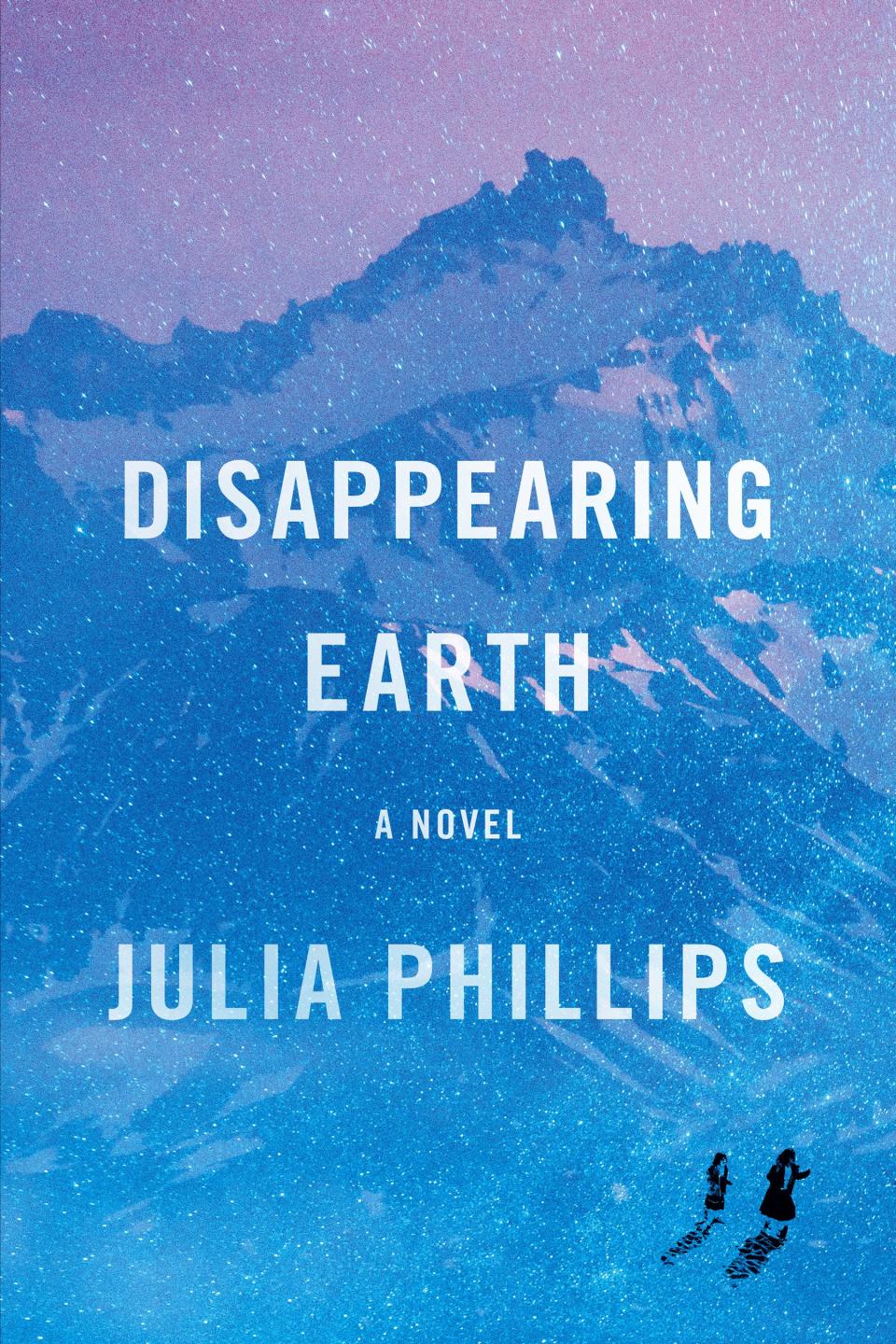Disappearing Earth brings Russia's Kamchatka Peninsula to stunning life: EW review
Disappearing Earth opens on a kidnapping. Two sisters — one 11, the other 8 — soak up the end of summer on the shoreline of northeast Russia’s isolated Kamchatka Peninsula, only to be lured into a strange, chubby young man’s gleaming black car. This vivid first chapter ends on a note of terrifying ambiguity — the girls just realizing their predicament — but it feels holistic too, a dark short story made all the more harrowing by its irresolution.
This turns out to be a most appropriate introduction. In her auspicious debut novel, Julia Phillips plots with methodical flair, constructing chapters as standalone tales, each told from the perspective of a different character while intricately advancing the narrative. This approach is hardly unorthodox — of recent titles, the structure resembles Laila Lalami’s The Other Americans and, down to the “Principal Characters” list that launches the book, 2018’s breakout debut There There — but for a literary whodunit set in a distinctively foreign land, it’s a particularly difficult one to pull off. Yet rarely has a novel so fully brought to life a place most couldn’t pretend to know.
Phillips, a Brooklyn resident and Montclair, N.J., native who lived in Kamchatka for two years, immerses readers in this region. It’s in the rich, humane characterizations; the plot’s gentle surprises; the reminders of the past; the rendering of the landscape. The kidnapping reaches far and wide, touching every member of Disappearing Earth’s sprawling ensemble. The book spans a year, each segment capturing a month (with an additional chapter covering New Year’s Eve), and the passage of time is grimly palpable. The case gets further away. Wild theories about the girls’ fate proliferate. Life goes on for some, but for others, a temporary pause starts to feel permanent. And xenophobia takes hold. “A foreigner could have easily taken them,” Valentina, a mother who works at an elementary school, says to a detective. “People behave like Kamchatka is an island. I have my doubts. If it’s so secure, how do migrant workers keep showing up?”
And yet Phillips shades even embittered, misguided Valentina with empathy, nuance, pride. A military child, Valentina mourns “a whole civilization lost,” back when Kamchatka was completely isolated from the outside world before the Cold War’s end. “To the south, east, and west was only ocean,” Phillips writes of its geography. “To the north, walling off the Russian mainland, were hundreds of kilometers of mountains and tundra. Impassable.” Kamchatka’s residents are now left to grapple with its slow opening-up, which ignites and increases dormant tensions and fears.

For the women of Kamchatka, who occupy the center of every section in the novel, a familiar sense of excruciating loss seeps to the surface, pervasive and unrelenting. Their stories are engrossing, propelled by emotional experiences that are brightly realized on the page. The most devastating, perhaps, follows a widow who’s faced with new, unimaginable tragedy. But there’s also an acidly funny slice of new romance, between a sharp customs officer in her 40s and the dopey hunk she’s falling for, in spite of herself. There’s a portrait of a college student finally breaking out of her shell, lusting after a classmate while her controlling boyfriend stands in the way. There’s a hint of queerness, the mere mention of which evokes danger and punishment. “They will come for you,” writes Phillips. “They will hurt you…. You could die for this.”
The parallel saga of another girl gone missing gains prominence as the novel develops: a Native high-schooler, whose disappearance years ago was barely investigated because she wasn’t white, or rich, or from a place news networks had ever paid attention to. As her family’s tragedy moves to the fore, the depth of Phillips’ storytelling prowess reveals itself. She challenges her readers — and characters — by offering new angles on her inciting incident, and imbuing each with authority and complexity. Phillips’ slant is American, but in the tradition of great Russian art — from Tolstoy through to the films of Andrey Zvyagintsev — Disappearing Earth tells delicate, impassioned, small human stories within sweeping, brutal, imposing political realities. As Phillips so exactingly writes of the widow: “It was what she did: live while others could not. There was no pleasure in it.”
Disappearing Earth wades through the darkness with heart. Its final three chapters, especially, overflow with life. The first of this batch considers the supposed “witness” to the abduction, whose marriage has fallen apart in the months since; she searches for her lost dog, a wounded quest that’d read miserably, were she not so true and alive and tartly funny. The next one at last introduces the girls’ mother, existing in alternately numb, grieving, guilty, and furious modes as she draws closer to a year without knowing if her daughters are dead or alive, waiting to be found.
The mother’s despondent state of being settles in acutely. But then — a miracle. Or the pieces falling into place. Or the inevitable climax of a crime thriller. By this point, Phillips has so effectively upended expectations, it’s hard to say. But her prose kicks into a new gear, and the shift feels right, a hopeful payoff to a despairing setup. A mother’s pain becomes a mother’s mission. Characters from various chapters converge. And a short coda to conclude Disappearing Earth breaks format, dropping a spiky twist while, more significantly, landing on a thematic grace note. I won’t dare spoil the context, but the final words spoken bind together a community, a peninsula, a world: “We are not alone.” A-
Related content:


